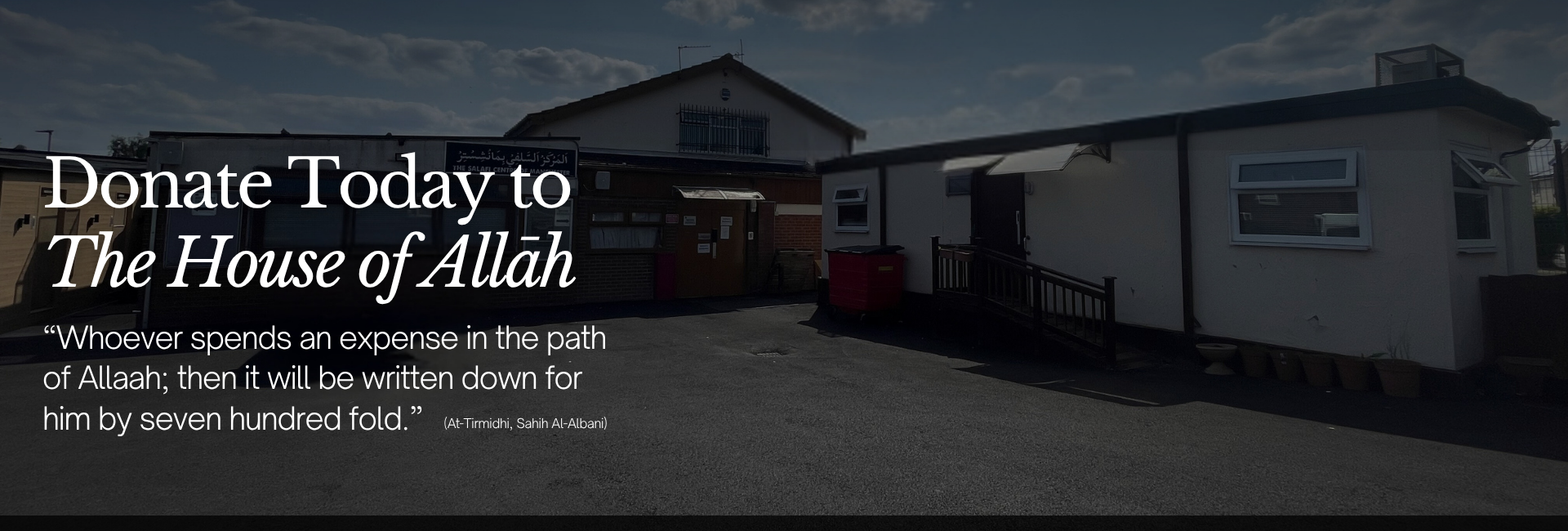Graceful and Truthful Vindications, Acknowledgements and Pardons

In The Name of Allah, The Most Merciful, The Bestower of Mercy.
Allah, The Exalted, reports to us in the story of Ashaab As-Sabt:
وَسْـَٔلْهُمْ عَنِ ٱلْقَرْيَةِ ٱلَّتِى كَانَتْ حَاضِرَةَ ٱلْبَحْرِ إِذْ يَعْدُونَ فِى ٱلسَّبْتِ إِذْ تَأْتِيهِمْ حِيتَانُهُمْ يَوْمَ سَبْتِهِمْ شُرَّعًا وَيَوْمَ لَا يَسْبِتُونَ لَا تَأْتِيهِمْ كَذَٰلِكَ نَبْلُوهُم بِمَا كَانُوا۟ يَفْسُقُونَ
وَإِذْ قَالَتْ أُمَّةٌ مِّنْهُمْ لِمَ تَعِظُونَ قَوْمًا ٱللَّهُ مُهْلِكُهُمْ أَوْ مُعَذِّبُهُمْ عَذَابًا شَدِيدًا قَالُوا۟ مَعْذِرَةً إِلَىٰ رَبِّكُمْ وَلَعَلَّهُمْ يَتَّقُونَ
فَلَمَّا نَسُوا۟ مَا ذُكِّرُوا۟ بِهِۦٓ أَنجَيْنَا ٱلَّذِينَ يَنْهَوْنَ عَنِ ٱلسُّوٓءِ وَأَخَذْنَا ٱلَّذِينَ ظَلَمُوا۟ بِعَذَابٍۭ بَـِٔيسٍۭ بِمَا كَانُوا۟ يَفْسُقُونَ
فَلَمَّا عَتَوْا۟ عَن مَّا نُهُوا۟ عَنْهُ قُلْنَا لَهُمْ كُونُوا۟ قِرَدَةً خَٰسِـِٔينَ
And ask them (O Muhammad) about the town that was by the sea, when they transgressed in the matter of the Sabbath (i.e. Saturday): when their fish came to them openly on the Sabbath day and did not come to them on the day they had no Sabbath. Thus We made a trial of them for they used to rebel. And when a community among them said: “Why do you preach to a people whom Allah is about to destroy or to punish with a severe torment?” (The preachers) said: “In order to be free from guilt before your Lord (Allah), and perhaps they may fear Allah.” So when they forgot the reminders that had been given to them, We rescued those who forbade evil, but We seized those who did wrong with a severe torment because they used to rebel (disobey Allah). So when they exceeded the limits of what they were prohibited, We said to them: “Be you monkeys, despised and rejected.” (It is a severe warning to mankind that they should not disobey what Allah commands them to do, and be far away from what He prohibits them). [Al-A’raf 163-166]
The majority of them transgressed and acted boldly, making their intentions known. One group declared their disapproval and condemnation of such actions, while another group sufficed themselves with the disapproval and condemnation (already carried out by the first group), and said to them: “Why do you preach to a people whom Allah is about to destroy or to punish with a severe torment?” It is as if they were saying: “There is no benefit in admonishing those who have violated Allah’s prohibitions and ignored the advice, instead they have continued their transgressions and rebellion. Indeed, it is inevitable that they will face divine retribution, either through destruction or severe punishment. So, the admonishers said: “We admonish and forbid them to be free from guilt (ourselves) before your Lord (Allah), and perhaps they may fear Allah”, in order words so that they abandon their sinful ways. We do not lose hope that they will be guided, as there is a possibility that admonition may resonate and have an impact on them. This is the greater objective of denouncing wrongdoing to serve as an excuse (for oneself) and to establish a case against those who are commanded to refrain from such actions, with the hope that Allah may guide them to act in accordance with His commands and prohibitions. [1]
Acknowledgement, Asking For An Excuse, and Leniency
Allah, The Exalted, informs us in the story of Prophets Musa and Khidr, peace and blessings of Allah be upon them:
فَٱنطَلَقَا حَتَّىٰٓ إِذَا رَكِبَا فِى ٱلسَّفِينَةِ خَرَقَهَا قَالَ أَخَرَقْتَهَا لِتُغْرِقَ أَهْلَهَا لَقَدْ جِئْتَ شَيْـًٔا إِمْرًا
قَالَ أَلَمْ أَقُلْ إِنَّكَ لَن تَسْتَطِيعَ مَعِىَ صَبْرًا
قَالَ لَا تُؤَاخِذْنِى بِمَا نَسِيتُ وَلَا تُرْهِقْنِى مِنْ أَمْرِى عُسْرًا
So they both proceeded, till, when they embarked on the ship, he (Khidr) scuttled it. Musa (Moses) said: “Have you scuttled it to drown its people? Verily, you have committed a thing “Imra” (a Munkar – evil, bad, dreadful thing).”
He (Khidr) said: “Did I not tell you, that you would not be able to have patience with me?” [Musa] said: “Call me not to account for what I forgot, and be not hard upon me for my affair (with you).” [Al-Kahf 71-73]
[Musa] said: “Call me not to account for what I forgot, and be not hard upon me for my affair (with you).” -Meaning, do not make this matter difficult for me, and kindly pardon me because this occurred due to forgetfulness. Therefore, do not call me to account on this first occasion. So, he (Musa) combined (in this statement) both an acknowledgment of the situation (i.e. his mistake due to forgetfulness) and an apology for it, indicating that it would not be suitable for you, O Khidr, to be harsh with your companion. Thus, Khidr pardoned him. [2]
Acknowledging The Tolerance and Kindness of Others
فَٱنطَلَقَا حَتَّىٰٓ إِذَا لَقِيَا غُلَٰمًا فَقَتَلَهُۥ قَالَ أَقَتَلْتَ نَفْسًا زَكِيَّةًۢ بِغَيْرِ نَفْسٍ لَّقَدْ جِئْتَ شَيْـًٔا نُّكْرًا
قَالَ أَلَمْ أَقُل لَّكَ إِنَّكَ لَن تَسْتَطِيعَ مَعِىَ صَبْرًا
قَالَ إِن سَأَلْتُكَ عَن شَىْءٍۭ بَعْدَهَا فَلَا تُصَٰحِبْنِى قَدْ بَلَغْتَ مِن لَّدُنِّى عُذْرًا
Then they both proceeded, till they met a boy, he (Khidr) killed him. [Musa] said: “Have you killed an innocent person who had killed none? Verily, you have committed a thing “Nukra” (a great Munkar – prohibited, evil, dreadful thing)!” (Khidr) said: “Did I not tell you that you can have no patience with me?” [Musa] said: “If I ask you anything after this, keep me not in your company, you have received an excuse from me.” [Al-Kahf 74-76]
[Musa] said: “If I ask you anything after this, keep me not in your company, you have received an excuse from me.”
Abdullah Ibn Abbas, may Allah be pleased with him and his father, said: Meaning: “Indeed, I (Musa) have given a vindication between you (Khidr) and I (i.e. you have a justification not to excuse me again).” [3] Muqatil Ibn Sulayman, may Allah have mercy upon him, “Means that you (Khidr) have given me much excuse” (i.e. you have a justification not to excuse me again). [4] Yahya Ibn Salam, may Allah have mercy upon him, said: “Means that “From my (Musa) perspective, I have offered a complete justification between you (khidr) and I (i.e. you have a justification not to excuse me again)”. [5] As-Sadi, may Allah have mercy upon him, said: Meaning, “If I (Musa) ask you (Khidr) anything” after this, “then do not accompany me”, in other words, you would be justified in doing so, and not to accompany me, “you have received an excuse from me”, in other words, you have indeed reached a point of justification in my eyes, and you have not fallen short”. [6]
Allah, The Exalted, informs in the story of Prophet Yusuf, peace be upon him, and his brothers:
قَالَ هَلْ عَلِمْتُم مَّا فَعَلْتُم بِيُوسُفَ وَأَخِيهِ إِذْ أَنتُمْ جَٰهِلُونَ
قَالُوٓا۟ أَءِنَّكَ لَأَنتَ يُوسُفُ قَالَ أَنَا۠ يُوسُفُ وَهَٰذَآ أَخِى قَدْ مَنَّ ٱللَّهُ عَلَيْنَآ إِنَّهُۥ مَن يَتَّقِ وَيَصْبِرْ فَإِنَّ ٱللَّهَ لَا يُضِيعُ أَجْرَ ٱلْمُحْسِنِينَ
قَالُوا۟ تَٱللَّهِ لَقَدْ ءَاثَرَكَ ٱللَّهُ عَلَيْنَا وَإِن كُنَّا لَخَٰطِـِٔينَ
قَالَ لَا تَثْرِيبَ عَلَيْكُمُ ٱلْيَوْمَ يَغْفِرُ ٱللَّهُ لَكُمْ وَهُوَ أَرْحَمُ ٱلرَّٰحِمِينَ
He said: “Do you know what you did with Yusuf (Joseph) and his brother when you were ignorant?” They said: “Are you indeed Yusuf?” He said: “I am Yusuf, and this is my brother (Benjamin). Allah has indeed been gracious to us. Verily, he who fears Allah with obedience to Him (by abstaining from sins and evil deeds, and by performing righteous good deeds), and is patient, then surely, Allah makes not the reward of the Muhsinun (good-doers) to be lost.” They said: “By Allah! Indeed Allah has preferred you above us, and we certainly have been sinners.” He said: “No reproach on you this day, may Allah forgive you, and He is the Most Merciful of those who show mercy! [Yusuf 89-92]
They said: “By Allah! Indeed Allah has preferred you above us, and we certainly have been sinners.” This means, “You have been given virtue over us due to your noble character and commendable traits, while we have wronged you to the utmost degree, striving to inflict harm upon you and to distance you from your father. (But) Allah, The Exalted, grant you gave you precedence by way of the status you desire”. [وَإِنْ كُنَّا لَخَاطِئِينَ , and we certainly have been sinners]. This serves as a complete admission of the wrongdoing they committed against Yusuf.
So, Yusuf, peace and blessings of Allah be upon him, said to them out of kindness and generosity: “No reproach on you this day”, in other words, neither will you be reproached nor blamed. “May Allah forgive you, and He is the Most Merciful of those who show mercy!” Thus, he granted them complete forgiveness without any reference to their previous wrongdoing, and he prayed for their pardon and mercy. This exemplifies the highest form of benevolence, which is only achievable by the most distinguished of the creation and the chosen ones. [7] [End of quotes]
We ask Allah:
اللهم كما حَسَّنْت خَلْقِي فَحَسِّنْ خُلُقِي
“O Allah! Just as You made my external form beautiful, make my character beautiful as well”.
(1) An Excerpt from “Tafsir As-Sadi”
(2) An Excerpt from “Tafsir As-Sadi”
(3) Al-Baghawi 5/192 (quoted from Mawsu’ah at-Tafsir Al-Ma’thurah Akbaru Jami Li-Tafsir An-Nabiy Was-Sahaabah wat-Tabi’in wa Tabi’ihim…. 13/618. 3rd Edition 1443AH (2022) Dar Ibn Hamz
(4) Tafsir Muqatil Ibn Salam 1/199 (quoted from Mawsu’ah at-Tafsir Al-Ma’thurah Akbaru Jami Li-Tafsir An-Nabiy Was-Sahaabah wat-Tabi’in wa Tabi’ihim…. 13/618. 3rd Edition 1443AH (2022) Dar Ibn Hamz
(4) Tafsir Muqatil Ibn Salayman 2/597 (quoted from Mawsu’ah at-Tafsir Al-Ma’thurah Akbaru Jami Li-Tafsir An-Nabiy Was-Sahaabah wat-Tabi’in wa Tabi’ihim…. 13/618. 3rd Edition 1443AH (2022) Dar Ibn Hamz
(5) Tafsir Yahyah Ibn Sallam 1/199 (quoted from Mawsu’ah at-Tafsir Al-Ma’thurah Akbaru Jami Li-Tafsir An-Nabiy Was-Sahaabah wat-Tabi’in wa Tabi’ihim…. 13/618. 3rd Edition 1443AH (2022) Dar Ibn Hamz
(6) An Excerpt from “Tafsir As-Sadi”
(7) An Excerpt from “Tafsir As-Sadi”




